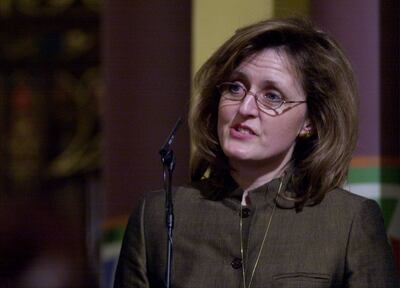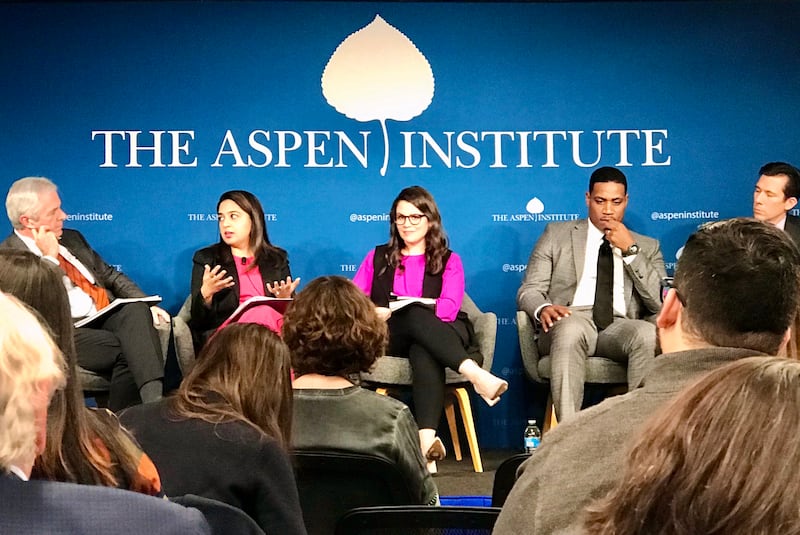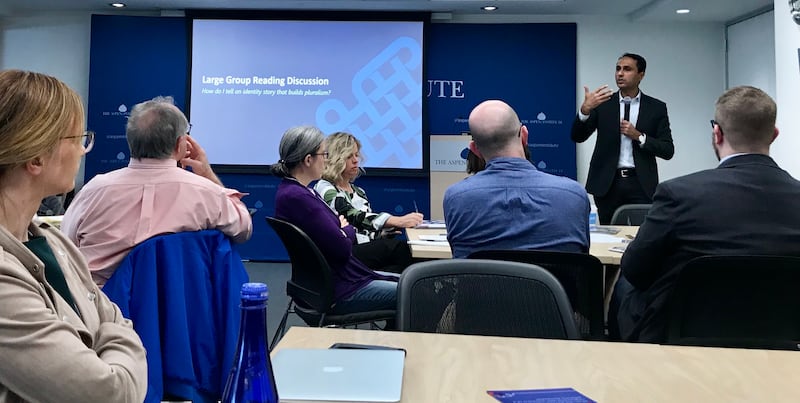SALT LAKE CITY — Westminster College and Brigham Young University are joining forces with 12 other educational institutions around the country to encourage conversations across religious and secular divides.
Those involved hope the interfaith initiative, called “Courageous Pluralism,” will help students with diverse viewpoints to meet and interact while also leading to a decline in hate crimes and divisions on U.S. campuses.

In the words of Jan Saeed, Westminster’s director of global peace and spirituality, Courageous Pluralism means countering polarization in all aspects of life and creating spaces where people feel welcome to share diverse views and perspectives in a respectful and compassionate way that can create a better world for everyone. It’s an important cause, she said.
“I believe building community and building understanding of one another breaks down the barriers that cause division and the dissolution of society,” Saeed said. “We need to come together in order to create a better community for all, a more inclusive, a more understanding and a more compassionate community for all, where all can be the best and most they can be.”
Interfaith Youth Core, a national nonprofit organization, is running the program in partnership with the Aspen Institute Inclusive America project with support from the Fetzer Institute and the Charles Koch Foundation, according to a news release.
Westminster is a small, liberal arts school that seeks to educate a group of students with a wide variety of religious identities, including some who don’t profess any religious faith or affiliation. BYU is a large, privately-owned university where more than 95% of students are members of The Church of Jesus Christ of Latter-day Saints.
The two Utah schools, like the others, were intentionally paired this way for a reason, Saeed said.
“They felt like bringing what could be seen as polarized or as very diverse campus cultures together to start these conversations and work on projects together that could also help bridge this understanding or this lack of understanding between diverse perspectives that can sometimes lead to the extremes of toxic polarization versus a healthy class of differing opinions to find the spark of truth,” Saeed said.
The BYU-Westminster partnership is a good one because they share common goals, said Shon Hopkin, chairman of the BYU Council of Religious Outreach and professor of religious education.
“One thing that IFYC works faithfully to accomplish is helping individuals, groups and institutions that are fundamentally different to work together to achieve aims that are worthwhile to both,” Hopkin said. “Jan Saeed and others at Westminster are excellent examples of individuals who understand faith commitment and who are themselves committed to supporting the emotional well-being of all their students as they seek to build understanding across religious divides and other deep divides that exist in society.”
Eboo Patel, founder and president of Interfaith Youth Core, said American college campuses “can play a critical role in recommitting to our nation’s core values, strengthening free expression while bridging diverse religious and political identities casting a vision for an inclusive society,”
Dan Porterfield, president and CEO of the Aspen Institute, agreed.
“Interfaith work on college campuses is a great example of how to make progress toward this goal by cultivating in students the critical skill sets and experiences they need to thrive in a religiously diverse world,” Porterfield said in a prepared statement.
“We need to come together in order to create a better community for all.” — Jan Saeed, Westminster’s director of global peace and spirituality
Saeed became acquainted with Interfaith Youth Core through interfaith work not long after she started working at Westminster in 2007 and has been involved ever since. BYU’s involvement has come in more recent years.
Saeed and Connie Etter, a professor of honors and justice studies at Westminster, recently met with BYU’s Hopkin and James Slaughter, campus chaplain to nonLatter-day Saint Students, and representatives from the other colleges at a meeting to launch the initiative in Washington D.C. on Feb. 3.
The other participating schools include:
- Gordon College (Massachusetts) and Middlebury College (Vermont)
- Calvin University and Grand Valley State University (both in Michigan)
- Eastern University and Lincoln University (both in Pennsylvania)
- Houghton College and Ithaca College (both in New York)
- Mount Vernon Nazarene University and Kenyon College (both in Ohio)
- Spring Arbor University and Oberlin College (both in Ohio)
The launch included a panel discussion titled, “Holy Bridges: The Role of Religion and American Polarization,” moderated by NPR’s Tom Gjelten.

The meeting in Washington D.C. allowed representatives to meet, discuss the project and resources, and how to move forward in organizing future activities, Saeed said.
“A big part of it was getting us all on the same page,” Saeed said.
The project is helping BYU to produce resources that will help its students understand the importance and rationale of interfaith engagement for Latter-day Saints and that will provide some guidance regarding how to engage in helpful, positive, equal ways with members of other faiths, Hopkin wrote.
“It is difficult to overstate the value of receiving counsel and advice from those outside of the institution to develop effective resources,” Hopkin wrote. “If we believe in understanding and working with those of other faiths, it seems important to have some input from others regarding how to best interact with them.
“Supporting and connecting with Jan and Connie’s vibrant program at Westminster that promotes interfaith understanding will also help fill the hunger that many BYU students feel, perhaps especially students who have grown up in areas where Latter-day Saints are a minority, and who may feel some longing to continue to interact with and build friends of other faiths even while at a university that is predominately Latter-day Saint.”
Westminster hopes Courageous Pluralism will help create a more “equal and accessible” campus so everyone feels included, Saeed said.
“We’re excited to be heading off on this adventure.”


